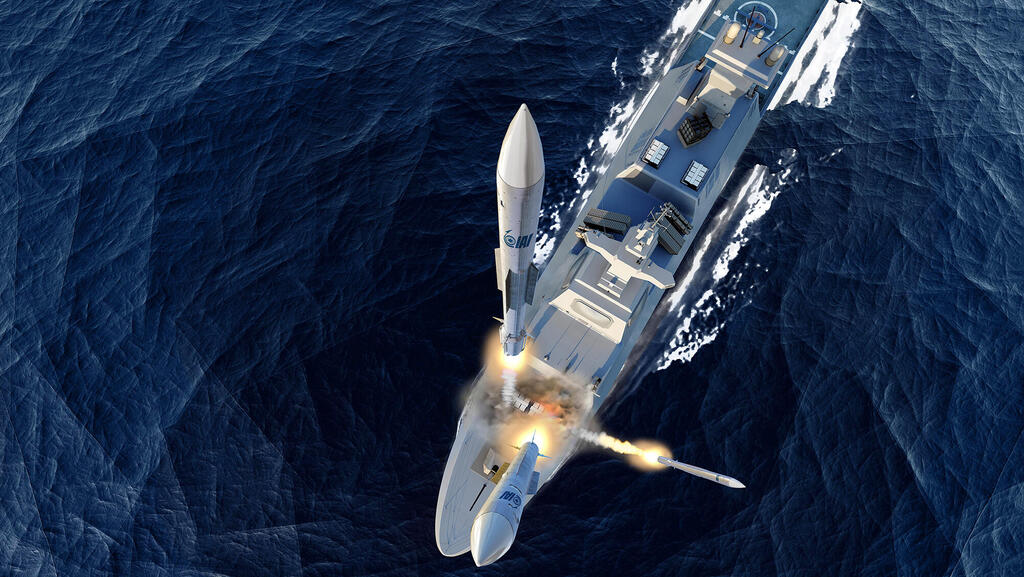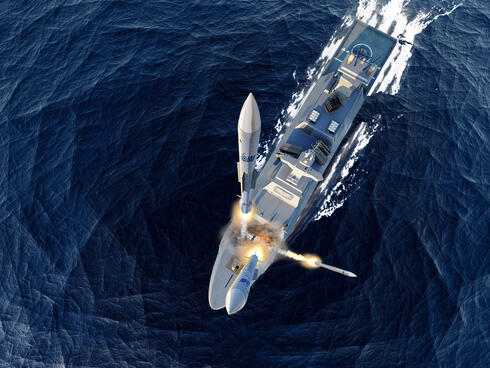
India–Pakistan tensions flare with Israeli weapons on the frontline
As conflict escalates, Israeli defense tech plays a central role in India’s military response.
The Indian Army, which launched a large-scale operation earlier this week against what it described as “terrorist infrastructure” operating from neighboring Pakistan, is equipped with an arsenal built over two decades of close cooperation with Israeli defense industries.
“We are constantly monitoring developments in the Kashmir region,” an Israeli security source told Calcalist. “Even when the world is focused elsewhere, incidents occur there almost every week. It’s still too early to assess how India’s operation will evolve—it could end quickly or escalate into a full-scale war.”
India’s military buildup to counter threats from both Pakistan and China includes advanced unmanned aerial vehicles (UAVs) from Elbit Systems and Israel Aerospace Industries (IAI), loitering munitions, precision missiles, and sophisticated air defense systems—acquired through multi-year investments worth billions of dollars.
This close security cooperation was demonstrated again just last month when the Indian Navy reported successful test launches of the Barak 8 missile system from new warships, part of its operational deployment process. The Barak 8 was developed through extensive collaboration between Israel Aerospace Industries and India’s Defense Research and Development Organisation (DRDO). In recent years, this collaboration has expanded beyond the Navy to include India’s air and ground forces as well. Israeli radars, manufactured by IAI subsidiary Elta Systems, are now deployed on Indian warships and land-based systems. Israeli defense market estimates suggest the Barak 8 project alone has exceeded $3 billion in value.
A significant portion of these systems are now manufactured in India, following Israeli alignment with Prime Minister Narendra Modi’s “Make in India” policy. This initiative requires foreign defense suppliers to produce domestically and transfer technological know-how. Elbit Systems, which supplies the Indian Army with Hermes 450 and Hermes 900 drones, does so via a joint venture with billionaire Gautam Adani’s conglomerate. Their production facility in Hyderabad is a centerpiece of the partnership.
In February, during the Aero India Air Show in Bangalore, Adani and Elbit showcased their latest offering—the Hermes 650 drone—currently being pitched to the Indian Air Force. In addition to Elbit’s drones, the Indian Air Force also operates IAI’s Heron series UAVs.
Related articles:
Israeli defense officials estimate arms sales to India in 2024 reached approximately $1.5 billion. “India has been a strong market for Israeli companies, even though election years tend to see a dip in orders,” a defense industry source told Calcalist. “Israel Aerospace Industries, Rafael, and Elbit all have major operations and significant representation in India.”
India’s support for Israel became especially apparent after the October 7 Hamas attack. While Israel faced a multi-front war and many countries restricted arms exports, India stepped in—supplying raw materials and Hermes 450 drones from its domestic production line. “Friends are measured in times of crisis,” said a senior Israeli defense official. “While many nations turned their backs, India stood by us. They even helped alleviate supply issues at the start of the war when all Israeli production was redirected to the IDF.”
Indian forces also use Israeli-made loitering munitions such as Elbit’s SkyStriker, which can hover over a target area and strike with precision once a suitable moment arises.
Israeli executives who attended the Bangalore exhibition in February noted that future cooperation with the Indian Ministry of Defense will likely require even deeper concessions—beyond tech transfer and local manufacturing. India is now demanding that future contracts be structured as joint ventures with Indian companies holding a controlling stake. This is part of a broader national strategy to transform India into a global arms exporter. According to the Stockholm International Peace Research Institute, India ranks as the second-largest arms importer in the world, just after war-stricken Ukraine.
